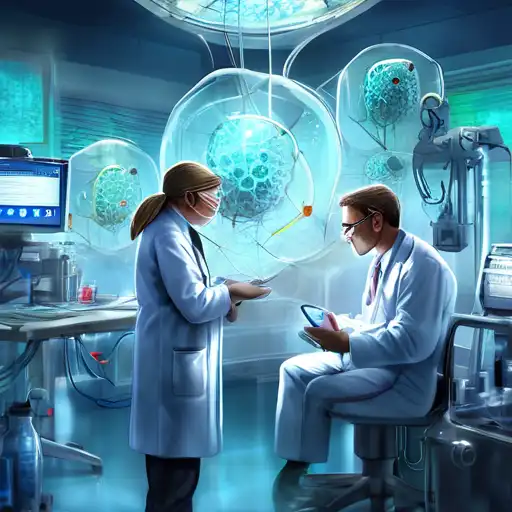Revolutionary Advances in Biotechnology Transforming Healthcare
In recent years, biotechnology has emerged as a beacon of hope, offering groundbreaking solutions to some of the most pressing health challenges. From gene editing to personalized medicine, these innovations are not just enhancing the quality of life but are also saving lives in ways previously unimaginable.
Gene Editing: A New Dawn for Genetic Disorders
One of the most talked-about breakthroughs in biotechnology is CRISPR-Cas9, a gene-editing technology that allows scientists to alter DNA sequences and modify gene function. This has opened up new possibilities for treating genetic disorders such as sickle cell anemia and cystic fibrosis. By correcting the genetic defects at their source, CRISPR offers a potential cure for diseases that were once considered untreatable.
Personalized Medicine: Tailoring Treatment to the Individual
Another significant advancement is the development of personalized medicine. This approach uses an individual's genetic profile to guide decisions regarding the prevention, diagnosis, and treatment of diseases. For example, in cancer treatment, personalized medicine can identify the most effective drugs for a patient's specific type of tumor, minimizing side effects and improving outcomes.
Biopharmaceuticals: The Next Generation of Drugs
Biopharmaceuticals, or biologics, are medical drugs produced using biotechnology. These include vaccines, blood components, and recombinant therapeutic proteins. Unlike traditional drugs, biopharmaceuticals are designed to target specific pathways in the body, offering more effective treatments with fewer side effects. The rapid development of COVID-19 vaccines is a testament to the power of biopharmaceuticals in responding to global health crises.
Stem Cell Therapy: Regenerating Hope
Stem cell therapy represents another frontier in biotechnology. By harnessing the body's own repair mechanisms, stem cell therapies offer hope for regenerating damaged tissues and organs. This has profound implications for treating conditions such as heart disease, diabetes, and spinal cord injuries, potentially restoring function where it was once lost.
The impact of these biotechnology breakthroughs cannot be overstated. They are not only saving lives today but are also paving the way for a healthier future. As research continues to advance, the potential for new discoveries is limitless, promising even more revolutionary treatments in the years to come.
For more information on how biotechnology is shaping the future of healthcare, explore our health innovation section.
